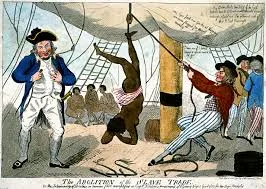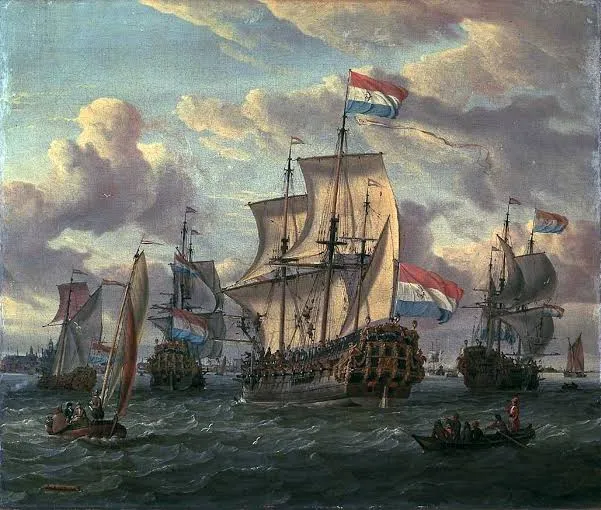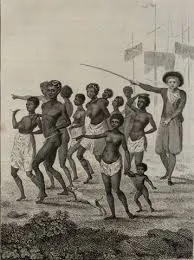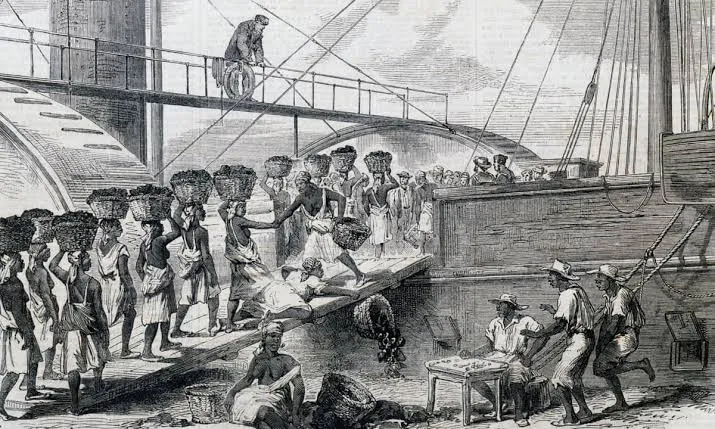
The slave trade, a heinous and heartbreaking practice that lasted for centuries, has left an indelible mark on human history. This dark chapter has been riddled with mysteries, as historians continue to uncover the extent of its cruelty, the complex networks involved, and the long-lasting consequences that still reverberate today. In this article, we delve into the shadowy depths of the slave trade, unraveling the enigma surrounding this inhumane enterprise.

The Roots of the Slave Trade
Slavery has existed since ancient times, with evidence tracing it back to the Babylonian, Egyptian, and Roman civilizations. However, the transatlantic slave trade, which transported millions of enslaved Africans to the Americas from the 16th to the 19th century, is perhaps the most infamous instance of human trafficking in history.
European colonizers sought to exploit the resources of the New World, establishing plantations and mines that required a massive labor force. Indigenous populations had already been decimated by European diseases, leading to a demand for enslaved Africans to toil in these harsh conditions. Thus, the transatlantic slave trade emerged, with Portuguese, Spanish, British, French, Dutch, and American traders profiting from this human suffering.

The Complex Network of the Slave Trade
The transatlantic slave trade was a vast and intricate network that spanned continents and involved numerous players. European traders, African rulers, and New World plantation owners collaborated to facilitate the capture, transportation, and exploitation of enslaved Africans.
African societies themselves were not homogenous; rivalries and alliances between different kingdoms led to the capture and sale of prisoners of war. European traders exploited these divisions, offering weapons and other goods in exchange for enslaved people. The infamous Middle Passage, which saw millions of Africans enduring a perilous journey across the Atlantic, stands as a testament to the immense suffering endured by these individuals.

The Economic Implications of the Slave Trade.
The slave trade generated immense wealth for European nations and their New World colonies. Plantations producing cash crops such as sugar, tobacco, and cotton relied on enslaved labor, contributing to the growth of European economies. The wealth amassed from the slave trade also fueled industrialization, further entrenching the power of European empires.
However, the slave trade had devastating economic consequences for Africa. It led to the depletion of the continent's population and disrupted traditional societies. Furthermore, the focus on human trafficking prevented the development of diverse economies, contributing to Africa's underdevelopment and vulnerability to colonialism.


The Abolition of the Slave Trade and its Aftermath:
The horrors of the slave trade eventually led to a global movement to abolish it. Britain, a major player in the trade, passed the Slave Trade Act in 1807, outlawing the practice throughout its empire. Other nations followed suit, and the transatlantic slave trade was largely eradicated by the mid-19th century.
While the abolition of the slave trade was a significant milestone, it did not immediately end the oppression of enslaved individuals. Slavery itself continued in many regions, including the United States, Brazil, and Cuba, until the late 19th century. Moreover, the legacies of the slave trade, such as racism, inequality, and economic disparities, persist to this day.
Unveiling the Mystery
The slave trade remains a dark mystery due to the complexity of its networks, the vastness of its scale, and the profound impact it has had on human history. Scholars continue to investigate this period, shedding light on the lives of enslaved individuals and the consequences of the trade. Through ongoing research, education, and dialogue, we can better understand the enigma of the slave trade and work towards a more equitable and just future.


In conclusion, the slave trade represents a tragic chapter in human history, characterized by unspeakable cruelty and suffering. By delving into the mysteries surrounding this dark era, we can learn invaluable lessons about the dangers of exploitation, the consequences of systemic inequality, and the importance of empathy and solidarity in combating oppression.